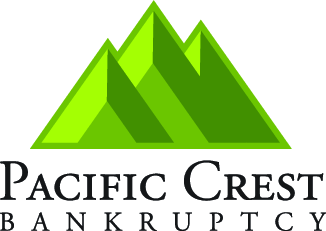
The Bankruptcy Code is divided into chapters. The chapters that usually apply to consumers are Chapter 7, where most or all of your debt is wiped out, and Chapter 13, which involves a repayment plan.
In most cases, once you file your case, the "Automatic Stay" immediately goes into effect. The Automatic Stay means that a bankruptcy filing automatically stops, or stays, and brings to a halt most lawsuits, repossessions, foreclosures, evictions, garnishments, attachments, utility shut-offs, and debt collection harassment. Generally, creditors cannot take any further action against you or your property without permission from the Bankruptcy Court.
Chapter 7
Chapter 7 is designed for people who are having financial difficulties and are not able to re-pay their debts.
Under the changes to the Bankruptcy Code that took effect October 17, 2005, you can usually qualify for a Chapter 7 if your average gross monthly income for the last six months is below your states Median Income, your gross income less certain expenses is below your state's Median Income, or you can show "special circumstances" that would allow you to qualify for Chapter 7.
Under Chapter 7, you can usually exempt, or keep, most or all of your assets under Oregon law, or, If you have not lived in Oregon for the past two years, under the state's exemption law that applies to your case. Most retirement accounts and pensions are also exempt. Secured property, normally your car and house, may not have any net equity, in which case you can keep it as well. The Bankruptcy Trustee liquidates most non-exempt property and uses the proceeds to pay your creditors according to priorities of the Bankruptcy Code.
Once your Chapter 7 case is over, you receive a discharge. The discharge prevents your creditors from taking any steps to try to collect their unsecured debt. They cannot call you, write you, sue you, or take any steps that could be considered an attempt to collect its debt. If you want to keep property that has a lien on it, you must keep your payments current, and may be required to reaffirm your debt. Some debts can not be discharged. Typical examples are child support, alimony, and other domestic support obligations, some taxes, student loans, criminal restitution, and debts for death or personal injury caused by operating vehicles while intoxicated which alcohol or drugs.
Chapter 13
Chapter 13 is a valuable tool that lets you catch up on overdue mortgage or car payments, taxes and domestic support obligations. It also applies where you have the ability to repay some or all of your debts over time. You must have less than $360,475 in unsecured debt (such as credit cards and doctor's bills) and less than $1,081,400 in secured debt (such as mortgages and car loans) to qualify for Chapter 13.
Under Chapter 13, you keep all of your property, both exempt and non-exempt, as long as you resume making your regular payments on secured debt and keep current under the repayment plan that we propose. A repayment plan can last for up to five years. After finishing your payments, most of your unsecured debts are discharged.
Chapter 11
Chapter 11 is designed primarily for business reorganization, but is also available to consumer debtors. Its provisions are quite complex. In the vast majority of cases, Chapter 11 is unnecessary and too expensive for most consumer debtors.
Chapter 12
Chapter 12 lets family farmers repay their debts over a period of time, and is in many ways similar to a Chapter 13 bankruptcy.
Credit Counseling

Reputable credit counselors can advise you on managing your money and your debts. They also are able to develop a plan to repay your debts. Unfortunately, many credit counselors are not reputable and charge high fees and contributions that will cause you to fall deeper into debt and damage your credit rating. Furthermore, many misrepresent their non-profit status and/or their affiliations with religious or charitable organizations, and are little more than collection agents for the credit card companies.
Under the changes to the Bankruptcy Code that took effect October 17, 2005, you are required to take two short credit counseling courses, one before you file bankruptcy, and one after you have filed. We will refer you to a reputable credit counselor who has been approved by the United States Bankrutpcy Trustee Department for these courses. You can find additional approved class providers here: http://www.justice.gov/ust/eo/bapcpa/ccde/CC_Files/CC_Approved_Agencies_HTML/cc_oregon/cc_oregon.htm


